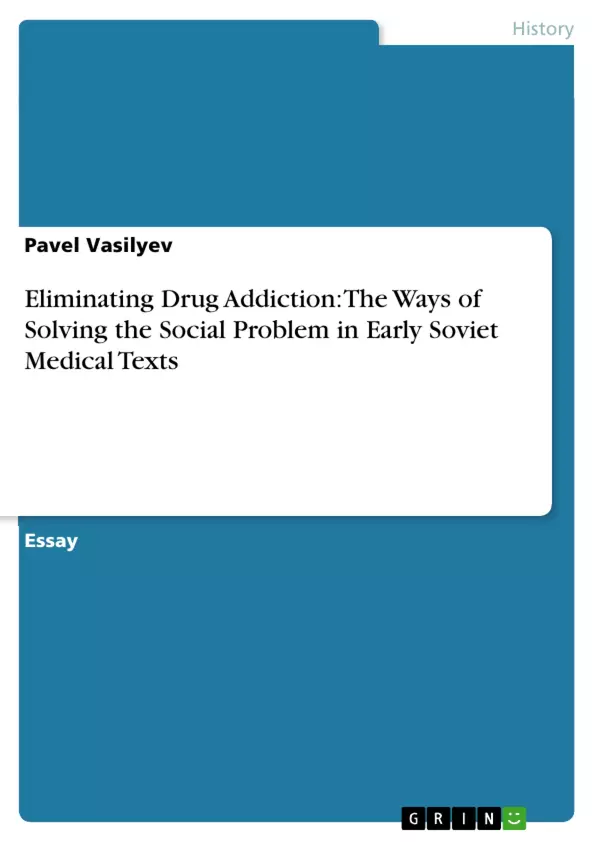Drug addiction is universally recognized as a crucial problem of the contemporary world, and there is a heated debate about it everywhere – Eastern Europe being no exclusion. The problem, however, is often presented largely simplified and there is a tendency to perceive recreational drugs as an unequivocal social evil and overestimate the role of the state in managing the problem. For some obvious reasons, Soviet historiography largely ignored the history of drug addiction in twentieth-century Russia, but it is striking that even today there is a clear lack of attention towards historical roots of the problem in this region and various cultural forms of drug use. This condition will appear even more surprising if we consider that interdisciplinary research on the history of drug addiction will allow the exploration of the intersection of medical theory, practical policy, social context, and cultural values.
In my paper I focus specifically on the early Soviet period of Russian history which witnessed the emergence of drug addiction as a social problem (ca. 1917 - 1929). I analyze early Soviet medical texts related to recreational drugs in order to show how physicians argued for the elimination of drug addiction. First, it is necessary to understand why Soviet physicians decided that it is important and indispensable to fight drug addiction. I also look on specific measures (professional medical and non-medical alike) that the doctors proposed to solve the social problem of drug addiction.
- Quote paper
- Pavel Vasilyev (Author), 2009, Eliminating Drug Addiction: The Ways of Solving the Social Problem in Early Soviet Medical Texts, Munich, GRIN Verlag, https://www.grin.com/document/163779



